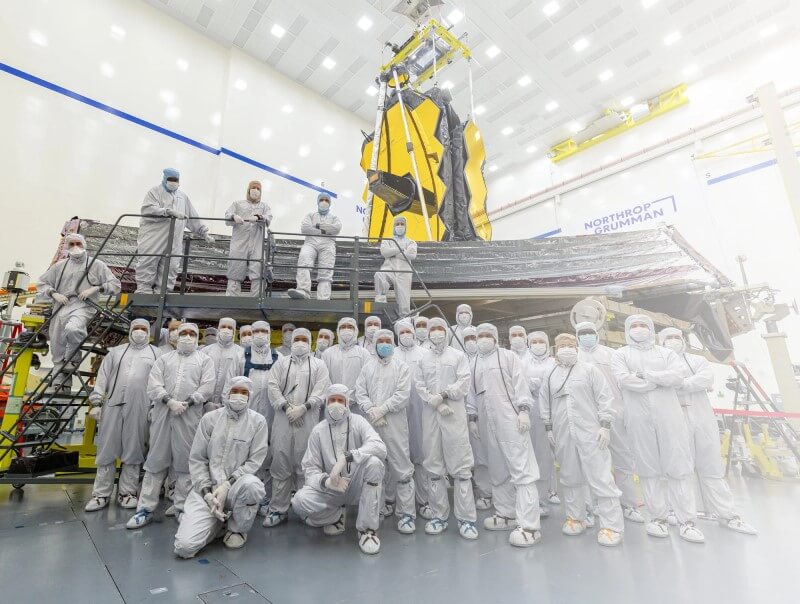The world of capital goods is expansive and diverse, encompassing companies that manufacture machinery, equipment, and other physical assets used in the production of goods and services across various industries. From heavy machinery to aerospace and defense systems, the capital goods sector plays a crucial role in driving economic growth and innovation. In this article, we’ll explore some of the prominent companies operating in the capital goods field and delve into the factors shaping this dynamic industry.

So, here is the major companies detail, before we identify and explore it further. In addition, you can check out Why a Solar Panel Loan Is a Worthy Investment?
Table of Contents
ToggleMajor Companies in the Capital Goods Field
When it comes to the capital goods industry, several key players dominate the landscape. These companies are leaders in their respective segments, driving innovation, and setting industry standards. Let’s take a closer look at some of the major players across different sectors within the capital goods field.
Leading Companies in Construction Equipment

One of the cornerstone segments of the capital goods industry is construction equipment. Companies in this sector manufacture heavy machinery and equipment used in construction, infrastructure development, and mining operations. Among the top players in this segment are:
- Caterpillar Inc.: Caterpillar is a global leader in construction equipment, offering a wide range of machinery, including excavators, bulldozers, and wheel loaders. The company’s products are renowned for their durability and performance, making Caterpillar a preferred choice for construction projects worldwide.
- Komatsu Ltd.: Komatsu is a Japanese multinational corporation that specializes in construction equipment and mining machinery. With a strong focus on innovation and technology, Komatsu has established itself as a leading manufacturer of heavy equipment, serving customers across the globe.
- Hitachi Construction Machinery Co., Ltd.: Hitachi Construction Machinery is known for its advanced machinery solutions designed to enhance productivity and efficiency on construction sites. From hydraulic excavators to dump trucks, Hitachi offers a comprehensive lineup of construction equipment trusted by industry professionals.
Top Players in Heavy Machinery Manufacturing
Another vital segment within the capital goods industry is heavy machinery manufacturing. Companies in this sector produce a wide range of industrial machinery used in manufacturing, agriculture, and other sectors. Some of the prominent players include:
- Deere & Company: Deere & Company, commonly known as John Deere, is a leading manufacturer of agricultural machinery and equipment. The company’s product portfolio includes tractors, combines, and harvesters, serving the needs of farmers and agricultural professionals worldwide.
- CNH Industrial NV: CNH Industrial is a multinational corporation with a diverse portfolio of brands specializing in agricultural and construction equipment. With brands like Case IH, New Holland, and Iveco, CNH Industrial is a major player in the global heavy machinery market.
- Volvo Group: Volvo Group is a Swedish multinational manufacturing company that produces trucks, buses, construction equipment, and marine and industrial engines. Known for its commitment to sustainability and innovation, Volvo Group continues to drive progress in the heavy machinery sector.
Prominent Aerospace and Defense Companies
In addition to construction and heavy machinery, the capital goods industry also encompasses aerospace and defense companies that manufacture aircraft, missiles, and defense systems. Some of the leading players in this sector include:
- Lockheed Martin Corporation: Lockheed Martin is a global aerospace and defense company engaged in the development of advanced technology systems and solutions. From fighter jets to space exploration vehicles, Lockheed Martin’s products play a crucial role in national security and space exploration.
- Boeing Company: Boeing is one of the largest aerospace manufacturers in the world, producing commercial jetliners, military aircraft, and space systems. With a legacy of innovation spanning over a century, Boeing continues to push the boundaries of aerospace technology.
- General Dynamics Corporation: General Dynamics is a diversified aerospace and defense company with business segments in aerospace, combat systems, marine systems, and information technology. The company’s products and services support military and government agencies worldwide.
Key Players in Electrical Equipment Industry
The electrical equipment industry is another integral part of the capital goods sector, encompassing companies that manufacture electrical components, power systems, and industrial automation solutions. Some of the key players in this segment include:
- Siemens AG: Siemens is a global powerhouse in electronics and electrical engineering, offering a broad portfolio of products and services in areas such as energy, healthcare, and infrastructure. From power generation to digitalization, Siemens is driving innovation across various sectors.
- Schneider Electric SE: Schneider Electric is a leading provider of energy management and automation solutions, helping customers optimize energy usage and improve operational efficiency. With a focus on sustainability and digital transformation, Schneider Electric is shaping the future of energy management.
- ABB Ltd.: ABB is a pioneering technology leader specializing in electrification, robotics, and motion, and industrial automation. The company’s solutions are used in diverse industries, from utilities and transportation to manufacturing and construction, driving progress and sustainability.
Major Players in Industrial Engineering Sector
The industrial engineering sector comprises companies that provide engineering solutions, equipment, and services to various industries. Some of the major players in this segment include:
- General Electric Company: General Electric, often referred to as GE, is a multinational conglomerate with business interests in aviation, healthcare, renewable energy, and power generation. With a legacy of innovation and engineering excellence, GE continues to be a driving force in industrial technology.
- Honeywell International Inc.: Honeywell is a global technology company that manufactures a wide range of industrial products, including aerospace systems, building technologies, and performance materials. Known for its focus on efficiency and productivity, Honeywell’s solutions are used in industries worldwide.
- Emerson Electric Co.: Emerson Electric is a diversified technology company that provides solutions for industrial automation, process control, and commercial and residential solutions. With a commitment to innovation and customer satisfaction, Emerson Electric serves a broad range of industries, from oil and gas to food and beverage.
Notable Players in the Automotive Industry
Last but not least, the automotive industry is a significant segment within the capital goods field, encompassing companies that manufacture vehicles, automotive components, and related products. Some of the notable players in this sector include:
- Toyota Motor Corporation: Toyota is a Japanese multinational automotive manufacturer known for its quality, reliability, and innovation. With a diverse lineup of vehicles, including hybrids and electric cars, Toyota continues to be a leader in the global automotive market.
- Volkswagen AG: Volkswagen is a German automaker with a rich history and a wide range of brands under its umbrella, including Volkswagen, Audi, Porsche, and Lamborghini. With a focus on sustainability and future mobility solutions, Volkswagen is shaping the future of transportation.
- General Motors Company: General Motors is an American multinational corporation that designs, manufactures, and sells vehicles and automotive parts worldwide. With iconic brands like Chevrolet, Cadillac, and GMC, General Motors has a significant presence in the automotive industry.
Emerging Trends in the Capital Goods Sector
The capital goods industry is constantly evolving, driven by technological advancements, changing consumer preferences, and global economic trends. Some of the emerging trends shaping the future of the sector include:
- Technological Advancements: Companies in the capital goods field are investing heavily in research and development to develop advanced technologies such as artificial intelligence, robotics, and additive manufacturing.
- Sustainable Practices: With increasing emphasis on environmental sustainability, capital goods companies are adopting eco-friendly manufacturing processes, renewable energy solutions, and recyclable materials.
- Market Expansion Strategies: As global markets become more interconnected, capital goods companies are exploring new opportunities for growth through strategic partnerships, mergers and acquisitions, and market diversification.
Challenges Faced by Capital Goods Companies
Despite the opportunities for growth and innovation, capital goods companies also face several challenges that impact their operations and profitability. Some of the key challenges include:
- Economic Fluctuations: The capital goods industry is highly cyclical and sensitive to economic downturns, fluctuations in commodity prices, and changes in consumer demand.
- Regulatory Compliance: Capital goods companies must comply with a wide range of regulations and standards related to product safety, environmental protection, and labor practices, which can increase compliance costs and regulatory risks.
- Supply Chain Disruptions: Global supply chains are vulnerable to disruptions caused by natural disasters, geopolitical tensions, and unexpected events like the COVID-19 pandemic, which can impact production schedules and delivery timelines.
Impact of COVID-19 on the Capital Goods Industry

The COVID-19 pandemic has had a significant impact on the capital goods industry, disrupting supply chains, delaying projects, and affecting consumer demand. In the short term, companies faced challenges such as temporary closures of manufacturing facilities, restrictions on international trade, and reduced investment in infrastructure projects.
However, the pandemic also accelerated trends such as digitalization, remote monitoring, and e-commerce, driving innovation and transformation in the capital goods sector. As the world adapts to the new normal, capital goods companies are embracing technologies such as augmented reality, predictive analytics, and remote maintenance to enhance operational efficiency and resilience.
Future Outlook of the Capital Goods Sector
Looking ahead, the capital goods sector is poised for continued growth and evolution, fueled by technological innovation, infrastructure development, and sustainability initiatives. As economies recover from the pandemic and invest in infrastructure projects, demand for construction equipment, industrial machinery, and aerospace systems is expected to rebound.
Additionally, advancements in areas such as renewable energy, electric vehicles, and smart manufacturing will create new opportunities for capital goods companies to innovate and expand their market presence. Overall, the future outlook for the capital goods sector remains promising, driven by the ongoing need for physical infrastructure, technological advancement, and global connectivity.
Investing in Capital Goods Companies
For investors looking to capitalize on the growth potential of the capital goods sector, several factors should be considered:
- Industry Trends: Stay informed about emerging trends, technological advancements, and market dynamics shaping the capital goods industry.
- Financial Performance: Evaluate the financial health and performance of capital goods companies, including revenue growth, profitability, and cash flow.
- Innovation and R&D: Assess the company’s investment in research and development, technological capabilities, and product innovation to stay ahead of competitors.
- Market Position: Consider the company’s market position, brand reputation, and competitive advantages within its industry segment.
- Risk Management: Identify potential risks and challenges facing the company, such as economic volatility, regulatory changes, and supply chain disruptions, and assess the company’s risk management strategies.
By carefully analyzing these factors and diversifying investments across different segments of the capital goods industry, investors can potentially benefit from long-term growth and capital appreciation.
If you’re looking for more worthwhile financial-related topics like this, browse our website. For all that and more, subscribe to our newsletter to receive the latest updates directly in your inbox.














